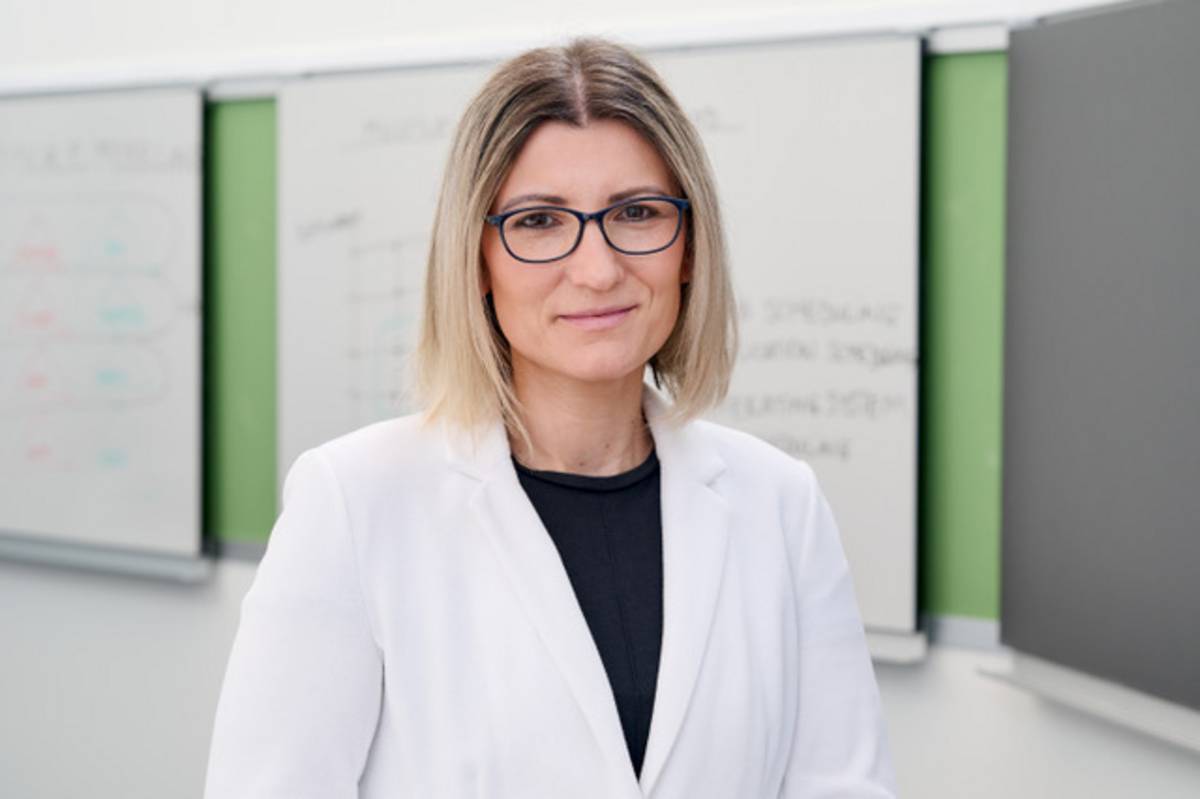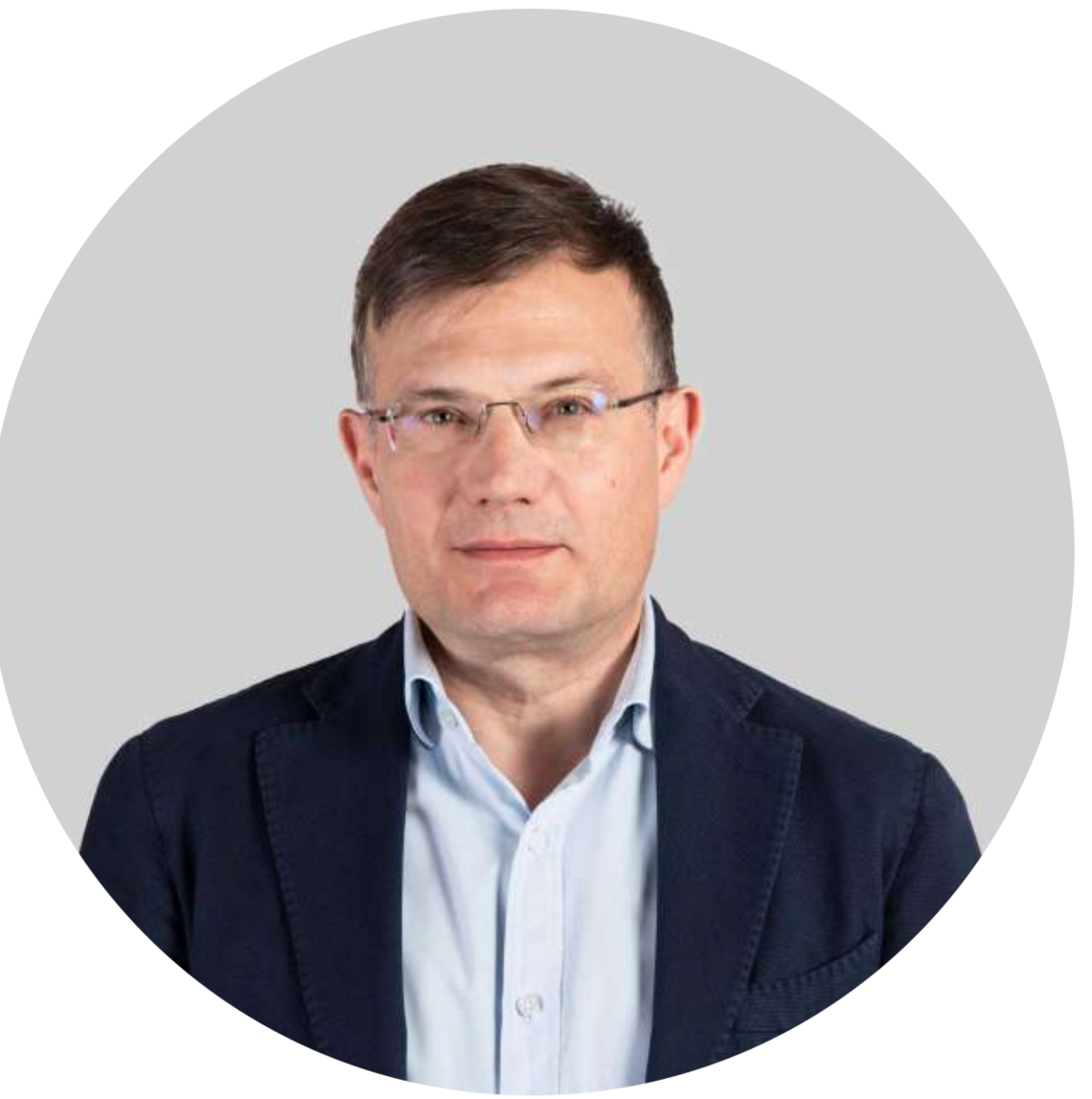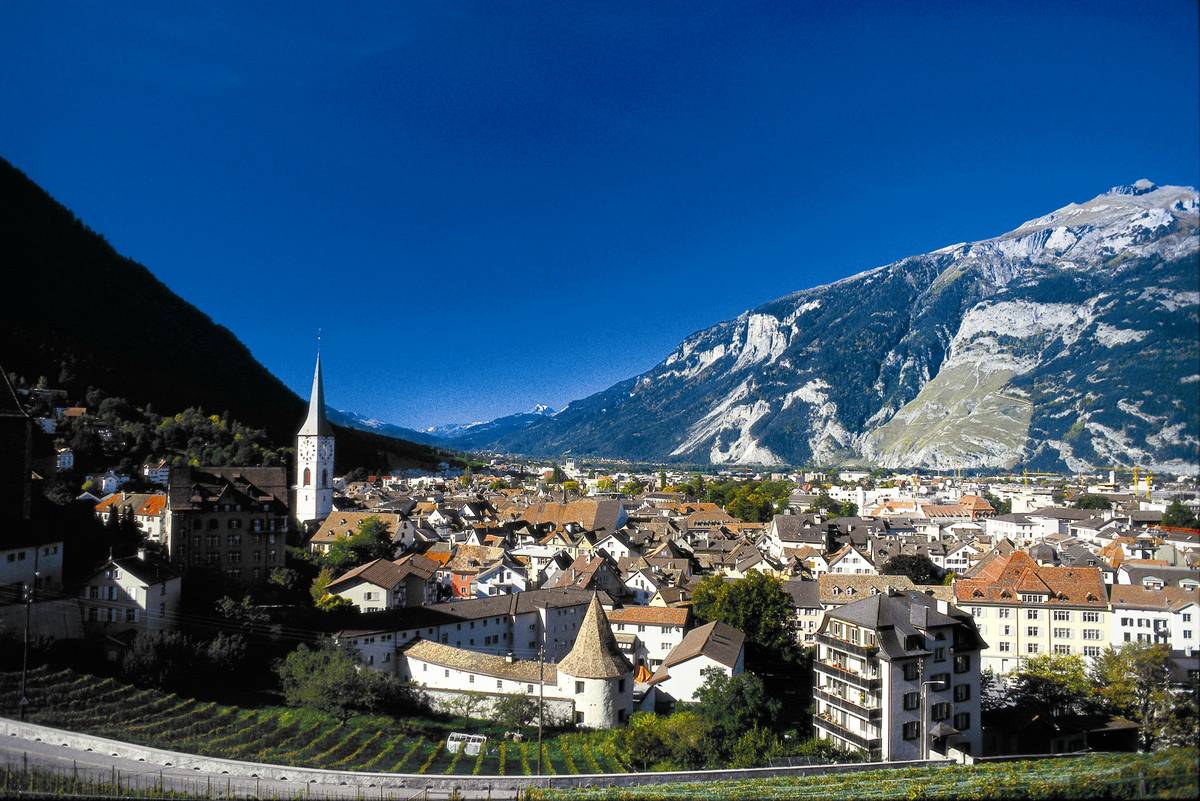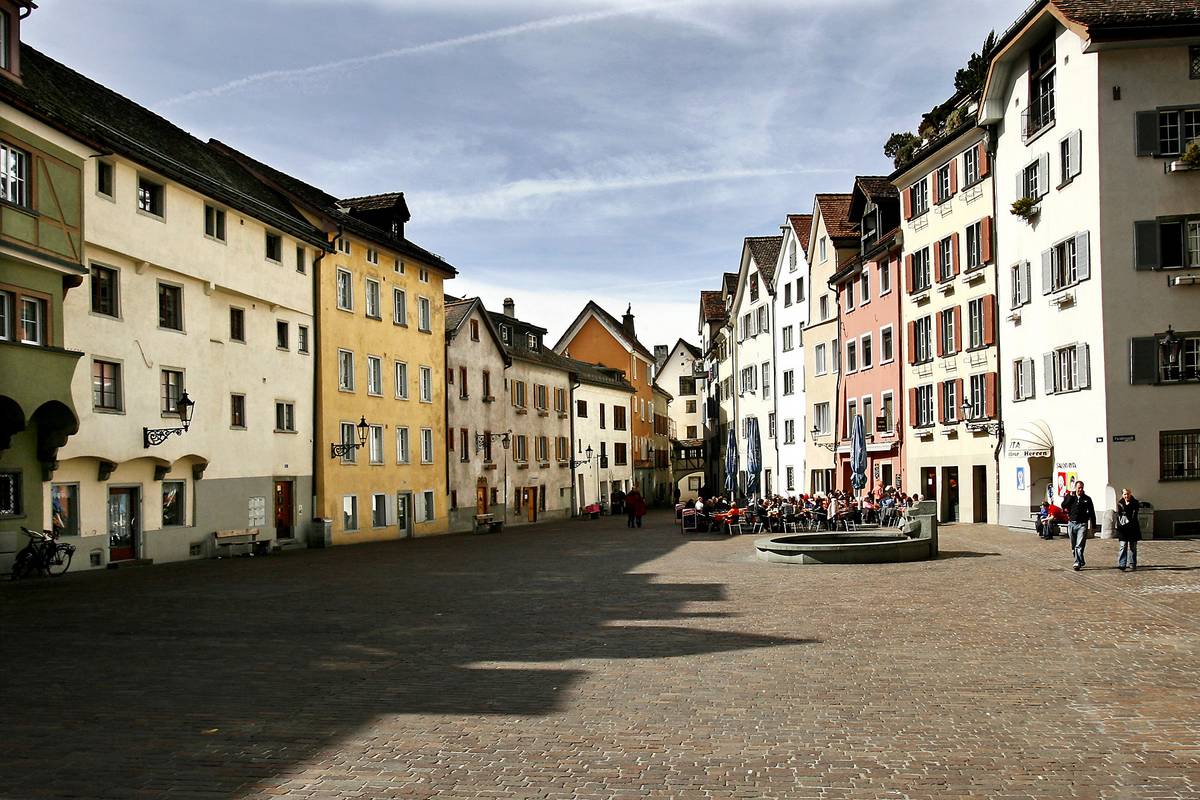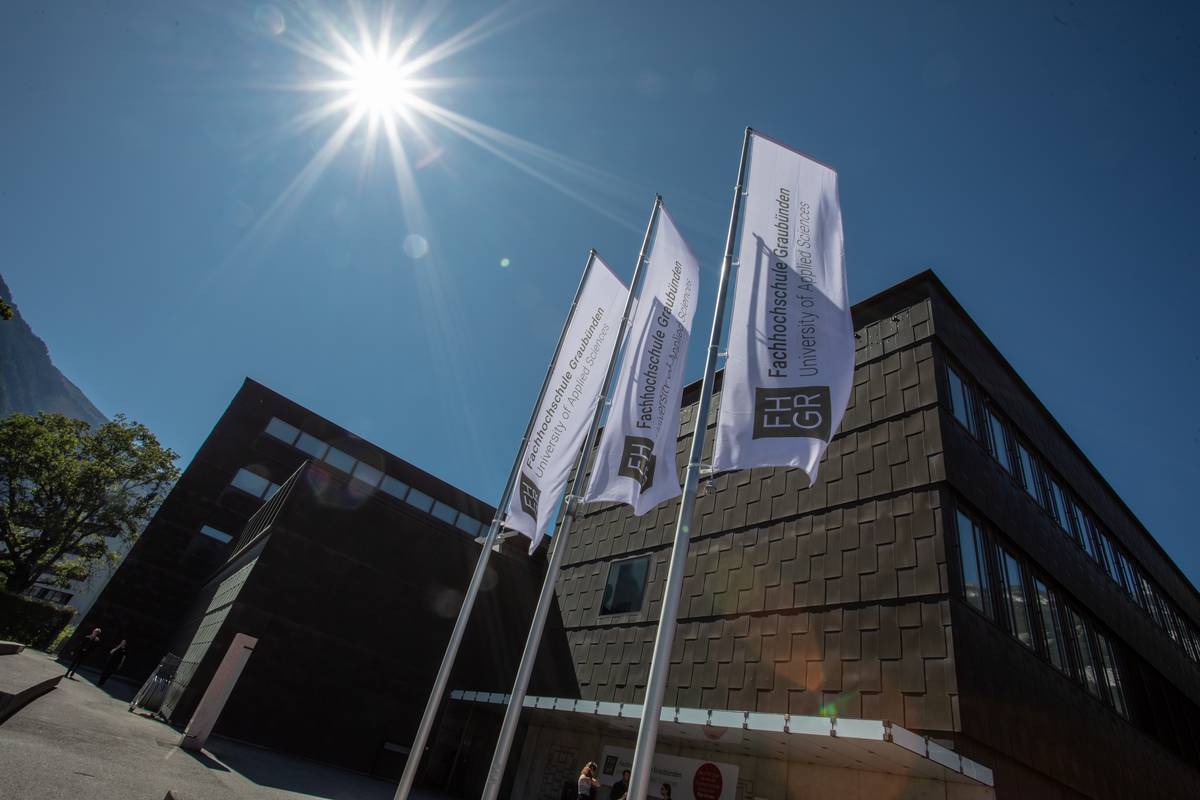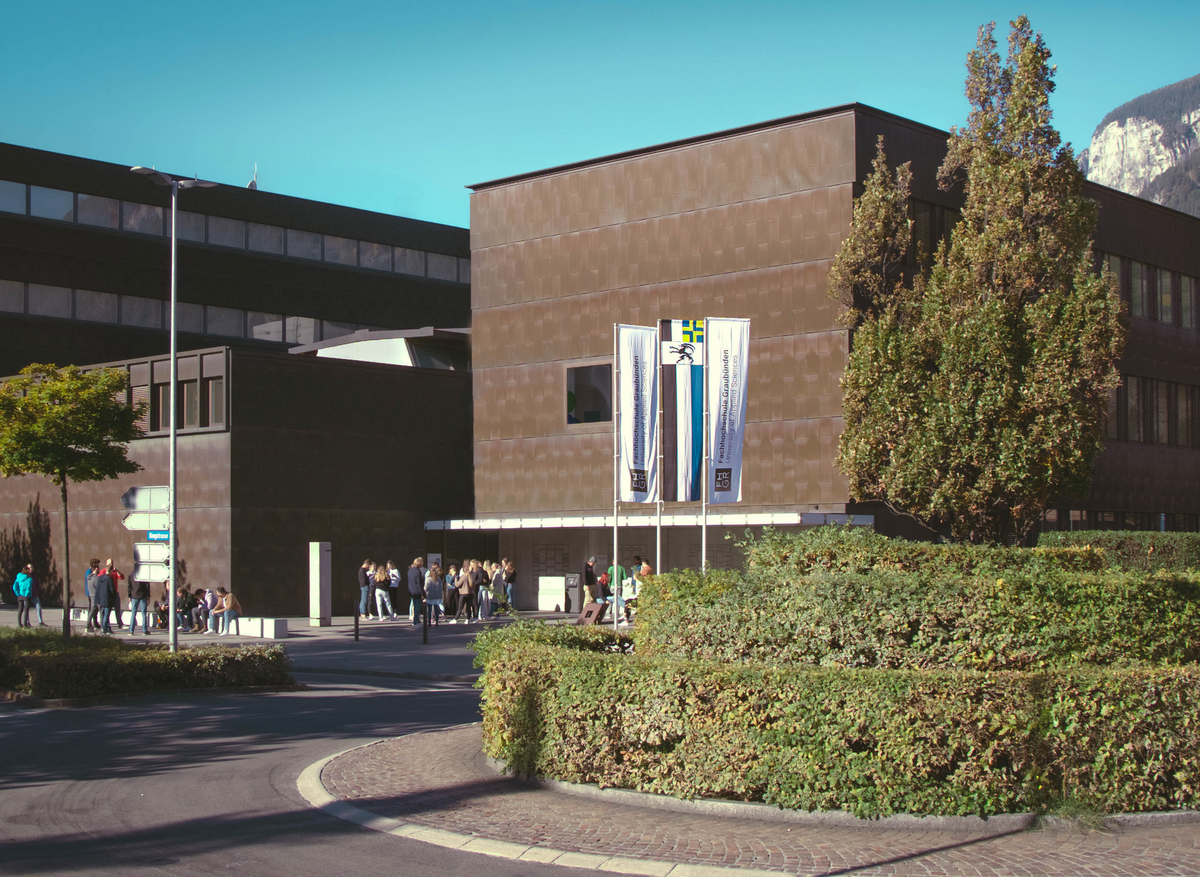2024 23rd International Symposium on Parallel and Distributed Computing (ISPDC)
Co-sponsored by IEEE, IEEE Computer Society, IEEE Technical Committee on Parallel Processing, IEEE Switzerland Section, and IEEE Swiss Chapter on Digital Communication Systems
08. - 10 July 2024, Chur, Switzerland
Following very successful previous editions in different venues since 2002, the 23rd ISPDC conference will be hosted by the University of Applied Sciences of the Grisons in Chur, Switzerland. The conference aims at presenting original and unpublished research that will target state-of-the-art as well as emerging topics pertaining to the field of Parallel and Distributed Computing paradigms and applications. Parallel and Distributed Computing is today a central topic in computer science, engineering and society in the development of new approaches for the modeling, design, analysis, evaluation, and programming of future parallel and distributed computing systems and applications.
We cordially invite you to submit your contribution to ISPDC 2024. See important dates further down. The event program will host presentations of invited talks, contributed papers, oral communications, and industrial sessions. Accepted papers will be part of the ISPDC 2024 conference proceedings which will be submitted for inclusion into IEEE Xplore (Conference Record #62236) subject to meeting IEEE Xplore’s scope and quality requirements. Accepted research papers (full and short) must be presented at the conference by one of the authors.
Authors are invited to submit manuscripts in the form or short (5 pages) or full papers (8 pages) that present original and unpublished research as well oral communications (1-4 pages description) about previously published work, position papers, and results from R&D projects in all areas of parallel and distributed computing and applications. The ISPDC 2024 conference scope is focused on, but not limited to, the following topics:
- Applications of parallel and distributed systems
- Efficient Support for the Computing Continuum (combining HPC, Cloud and Edge Computing)
- Algorithms and Models for Large Scale Applications
- Architectures and Environments for Parallel and Distributed Computing
- Performance Modeling, Analysis and Evaluation for Parallel and Distributed Systems
- Security and Privacy in Parallel and Distributed Systems
- Blockchain and Distributed Ledgers
- Mobile and Embedded Computing
For more details, see the Call for Paperssection.
Important Dates
Abstracts:
April 13, 2024 (optional)
Papers/Oral Comm:
May 12, 2024 AoE (final extended deadline)
Notification:
June 04, 2024
Camera-ready:
June 22, 2024
Author & Early Registration:
June 01 - June 21, 2024
Regular Registration:
June 22 - July 01, 2024
Conference:
July 08 - July 10, 2024
Call for Papers
Authors are invited to submit manuscripts in the form or short (5 pages) or full papers (8 pages) that present original and unpublished research as well oral communications (1-4 pages description) about previously published work, position papers, and results from R&D projects in all areas of parallel and distributed computing and applications. The ISPDC 2024 conference scope is focused on, but not limited to, the following topics:
Efficient Support for the Computing Continuum (combining HPC, Cloud and Edge Computing)
- Cloud Resource Provisioning and Allocation
- Pricing of Cloud Resources
- Cloud Performance and Capacity Management
- Green Cloud Computing
- Cloud Computing Techniques for Big Data
- Storage Architectures for Clouds and Big Data Processing
- Distributed Data Centers
- Fog Computing and Networking architectures
- Edge-Cloud Interactions and Enabling Protocols
- Edge Resource Management
- IoT
- Edge Data Analytics
- Edge Caching
- Collaborative Computing
- Web Services and Internet Computing
- Multi-agent Systems
- Real-time and Reactive Distributed and Parallel Systems
- System and Service Management
Algorithms and Models for Large Scale Applications
- Algorithms, Models and Formal Verification
- Model Checking for Parallel Computing
- Algorithms for Data Science, Data Exploration and Graph Analytics
- Parallel Programming Paradigms and APIs
- GPU Programming
- Bio-Inspired and Nature-Inspired Parallel Algorithms
- Parallel and Distributed Algorithms for Deep Learning
- Social Networks
- Scalable Algorithms and Applications
- Urban Networks and Applications
- Vehicular Networks
- Parallel, Distributed Big-Data Management
- Smart Applications
- Visualization of Massively Parallel Data
- Decentralized Artificial Intelligence
Architectures and Environments for Parallel and Distributed Computing
- Methods and Tools for Parallel and Distributed Programming Design and Analysis
- Multi-Cores, Clusters and Grid Computing
- Architectures and Software for In-Memory Computing
- Systems Architectures for Graph Computing/Processing
- Innovative Systems Architectures for Big Data Processing
- Virtualization
- Network Architectures for HPC and Data Centers
Performance Modeling, Analysis and Evaluation for Parallel and Distributed Systems
- Scheduling and Load Balancing
- Resource Management
- Execution Control Optimization
- Performance Modeling, Management and Optimization
- QoS in Distributed Systems
- Energy Efficiency
- Green and Sustainable Computing
Security and Privacy in Parallel and Distributed Systems
- Cloud Security and Privacy
- Virtualization-based Security
- Operating System Level Security
- Data Security and Privacy in Social Networks
- Security of Distributed IoT Systems
- Penetration Testing of Distributed Applications
- Security Tools for Distributed Applications (Programming Languages, Compilers, Analysis Tools etc.)
- Security and Privacy of Distributed Mobile Applications
- Network Security and Isolation
- Adversary Emulation
- Applied Cryptography
- Isolation Techniques
- Applications of Machine Learning in Distributed Systems Security
- Machine Learning Models for Malware Detection
- Big Data Techniques for Security Reasoning
- Data Anonymity and Privacy
- Software Defined Networks
Blockchain and Distributed Ledgers
- Distributed Consensus
- Transaction Throughput and Scalability Issues
- Decentralized Application Development using Smart Contracts
- Asset Tracking and Financial Services
- Blockchain and Energy Systems
Mobile and Embedded Computing
- Parallel Embedded Systems Programming
- Highly Embedded Parallel Systems Support for Programming
- FPGA and SoC/NoC Solutions
- Embedded, Mobile and Network Environments
- Mobile and Ubiquitous Distributed Computing
- Mobile Data Management
- Mobile Clouds
People
General Chair
- Ralf-Peter MUNDANI, University of Applied Sciences of the Grisons, Switzerland
Program Committee Co-Chairs - Michael BADER, Technische Universität München, Germany
- Bogdan NICOLAE, Argonne National Laboratory, USA
Proceedings Chair - Michael BURCH, University of Applied Sciences of the Grisons, Switzerland
Finance Chair - Yves STAUDT, University of Applied Sciences of the Grisons, Switzerland
General Publicity Chair - Philipp NEUMANN, DESY/Universität Hamburg, Germany
Regional Publicity Chairs - Dalvan Griebler, Pontifical Catholic University of Rio Grande do Sul, Brazil
- Srishti Srivastava, University of Southern Indiana, USA
- Tobias Weinzierl, Durham University, UK
Local Organizing Committee - Yves STAUDT, University of Applied Sciences of the Grisons, Switzerland
- Curdin MARXER, University of Applied Sciences of the Grisons, Switzerland
- Lucas ZIMMERMANN, University of Applied Sciences of the Grisons, Switzerland
Advisory Committee - Gul AGHA, University of Illinois at Urbana-Champaign, USA
- Hans-Joachim BUNGARTZ, Technische Universität München, Germany
- John MORISSON, University College Cork, Ireland
- Traian MUNTEAN, Aix Marseille University, France
- Nicolae ȚĂPUȘ, University Politehnica of Bucharest, Romania
Steering Committee - Ciprian DOBRE, University Politehnica of Bucharest, Romania – Chair
- Ioana BANICESCU, Mississippi State University, USA
- Florina M. CIORBA, University of Basel, Switzerland
- Daniel GROSU, Wayne State University, USA
- Alba Cristina Magalhaes ALVES de MELO, University of Brasilia, Brazil
- Susanne GRAF, CNRS Verimag Research Laboratory Grenoble, France
- Alexandru IOSUP, Vrije Universiteit Amsterdam & Technische Universiteit Delft, The Netherlands
- Hai JIN, Huazhong University of Science and Technology, China
- Alexey LASTOVETSKY, University College Dublin, Ireland
- Ralf-Peter MUNDANI, University of Applied Sciences of the Grisons, Switzerland
- Philipp NEUMANN, DESY/Universität Hamburg, Germany
- Dana PETCU, West University of Timișoara, Romania
- Radu PRODAN, Alpen-Adria-Universität Klagenfurt, Austria
- Michel RIVEILL, Université Côte d’Azur, France
- Chunming RONG, University of Stavanger, Norway
- Tobias WEINZIERL, Durham University, UK
Program Committee - Hartwig ANZT, Karlsruhe Institute of Technology, Germany / University of Tennessee, USA
- Jorge G. BARBOSA, University of Porto, Portugal
- Shyam BURKULE, Meta, USA
- Lucia CASCONE, University of Salerno, Italy
- Aniello CASTIGLIONE, University of Naples Parthenope, Italy
- Jean-Claude CHARR, Université de Franche-Comté, France
- Marta CHINNICI, ENEA, Italy
- Jianzhang CHEN, Fujian Agriculture and Forestry University, China
- Anthony T. CHRONOPOULOS, University of Texas at San Antonio, USA
- Raphaël COUTOURIER, University of Franche-Comté, France
- Georges DA COSTA, University of Toulouse Paul Sabatier, France
- Cesar DE ROSE, Pontifical Catholic University of Rio Grande do Sul (PUCRS), Brazil
- Juan J. DURILLO, Leibniz Supercomputing Centre (LRZ), Germany
- Jérôme FRISCH, RWTH Aachen, Germany
- Nuno GARCIA, Universidade da Beira Interior, Portugal
- Paweł GEPNER, Warsaw University of Technology, Poland
- George GRAVVANIS, Democritus University of Thrace, Greece
- Ibrahim HOTEIT, King Abdullah University of Science and Technology, Saudi Arabia
- Vasileios KARAKOSTAS, University of Athens, Greece
- Helen KARATZA, Aristotle University of Thessaloniki, Greece
- Keiji KIMURA, Waseda University, Japan
- Joanna KOLODZIEJ, Cracow University of Technology, Poland
- Peter KROPF, Université de Neuchâtel, Switzerland
- Eryk LASKOWSKI, Institute of Computer Science Polish Academy of Sciences, Poland
- Alexey LASTOVETSKY, University College Dublin, Ireland
- Chih-Wei LIN, Fujian Agriculture and Forestry University, China
- Kyle MANDLI, Columbia University, USA
- Łukasz MAŚKO, Institute of Computer Science Polish Academy of Sciences, Poland
- Kushagra MISHRA, Nutanix, USA
- Bogdan-Costel MOCANU, University Politehnica of Bucharest, Romania
- Raffaele MONTELLA, University of Naples Parthenope, Italy
- Gabriel NEAGU, National Institute for R&D in Informatics (ICI) Bucharest, Romania
- Bogdan NICOLAE, Argonne National Laboratory, USA
- Virginia NICULESCU, Universitatea Babeș-Bolyai Cluj, Romania
- Nikela PAPADOPOULOU, National Technical University of Athens, Greece
- Marcin PAPRZYCKI, Systems Research Institute Polish Academy of Sciences, Poland
- Nikos PARAVANTZAS, INSA Rennes, France
- Dirk PFLÜGER, University of Stuttgart, Germany
- Franciszek SEREDYNSKI, Cardinal Stefan Wyszynski University in Warsaw, Poland
- Bogdan SIMION, University of Toronto, Canada
- Przemyslaw STPICZYNSKI, Marie Curie-Skłodowska University, Poland
- José Luis VAZQUEZ-POLETTI, Universidad Complutense de Madrid, Spain
- Josef WEIDENDORFER, Technical University of Munich, Germany
- Laurence YANG, St Francis Xavier University, Canada
Program
Monday, July 8, 2024 (Day 1)
08:00 - 09:00 Registration
09:00 - 09:15 ISPDC 2024 Welcome Remarks - Ralf-Peter Mundani, FHGR
09:15 - 09:30 Opening Word - Jürg Kessler, President, FHGR
09:30 - 10:30 [Keynote talk] Beyond Time and Tasks: Navigating the Multiple Challenges of Modern Scheduling Systems - Florina Ciorba, University of Basel
10:30 - 11:00 Coffee break (provided)
Session 1: Simulation & CFD Applications (Chair: Ralf-Peter Mundani)
11:00 - 11:30 High-Performance Simulations for Urban Planning: Implementing Parallel Distributed Multi-Agent Systems in MATSim - Janek Laudan, Paul Heinrich and Kai Nagel
11:30 - 12:00 Real-Time Routing in Traffic Simulations: A Distributed Event Processing Approach - Paul Heinrich, Janek Laudan and Kai Nagel
12:00 - 12:30 Voxelization of Moving Deformable Geometries on GPU - Ronith Kumar, Raman Deep, Dip Sankar Banerjee and Nipun Arora
12:30 - 14:00 Lunch break (provided)
Session 2: Distributed Computing, Networking, and Security (Chair: Bogdan Nicolae)
14:00 - 14:30 Design and Development of XiveNet: A Hybrid CAN Research Testbed - William Lambert, Sheikh Ghafoor, Haley Burnell, Brennan Huber, Farah Kandah and Anthony Skjellum
14:30 - 15:00 Distributed, Continuous and Real-time Trajectory Similarity Search - Salman Ahmed Shaikh, Hiroyuki Kitagawa and Akiyoshi Matono
15:00 - 15:30 Developing AI Applications for the HPC-Cloud Continuum with ColonyOS - Johan Kristiansson and Thor Wikfeldt
15:30 - 16:00 Toward Profiling IoT Processes for Remote Service Attestation - William Johnson, John Housley, Sheikh Ghafoor and Stacy Prowell
16:30 - 17:30 Apéro (Get together)
Tuesday, July 9, 2024 (Day 2)
09:00 - 10:00 [Keynote talk] Arachne: An Open-Source Framework for Interactive Massive-Scale Graph Analytics - David A. Bader, New Jersey Institute of Technology
10:00 - 10:30 Coffee break (provided)
Session 3: Performance, Benchmarking, and Optimisation (Chair: David A. Bader)
10:30 - 11:00 Ensemble-Based System Benchmarking for HPC - Anna Fuchs, Jannek Squar and Michael Kuhn
11:00 - 11:30 Evaluation of stdpar Compilers on a Kernel Matrix Assembly and a BLAS Level 3 SYMM Kernel - Marcel Breyer, Alexander Van Craen and Dirk Pflüger
11:30 - 12:00 SmartShip: Data Decoding Optimization for Onboard AI Anomaly Detection - Pavle Ivanovic, Alexander Windmann and Philipp Neumann
12:00 - 12:30 Towards End-to-End Compression in Lustre - Anna Fuchs, Jannek Squar and Michael Kuhn
12:30 - 14:00 Lunch break (provided)
Oral communication
14:00 - 14:30 Big Data and Scientific Computing for Matter: Recent Developments at DESY - Philipp Neumann
Session 4: Scheduling and Large-Scale Applications (Chair: Philipp Neumann)
14:30 - 15:00 A Scheduling Algorithm for Hyperledger Fabric Based on Transaction Batch Processing - Junyu Jia, Ou Wu, Shanshan Li, Rufei Ma and He Zhang
15:00 - 15:30 Energy Optimization through a Multidimensional Distributed Scheduling Approach - Humberto Valera, Leonel Guerrero, Carlos Sivira, Alan Rojas, Lucas Aguilar, Marc Dalmau, Philippe Roose and Yudith Cardinale
15:30 - 16:00 Large-Scale Graphs Community Detection using Spark GraphFrames - Elena-Simona Apostol, Adrian-Cosmin Cojocaru and Ciprian-Octavian Truică
19:00 - 22:00 Conference dinner (included in the registration)
Restaurant Da Noi, Vazerolgasse 12, 7000 Chur
Wednesday, July 10, 2024 (Day 3)
09:00 - 10:00 [Keynote talk] HPC for Machine Learning: Distributed Training of Neural Networks - Rolf Krause, Università della Svizzera Italiana
10:00 - 10:30 Coffee break (provided)
Session 5: Synchronisation (Chair: Rolf Krause)
10:30 - 11:00 CAA: A Concurrent AA Tree via Logical ordering - Kapil Kumar Attinagaramu and Praveen Alapati
11:00 - 11:30 Scalable Compact NUMA-aware Lock - Brahmaiah Gandham and Praveen Alapati
Session 6: Green Computing and Number Theory (Chair: Rolf Krause)
11:30 - 12:00 Towards Green HPC Job Outsourcing: Energy Models for Molecular Dynamics Simulations on Three Clusters - Ruben Horn and Philipp Neumann
12:00 - 12:30 A Methodology for Computing Irrational Numbers - Thomas Keller, Michael Burch and Heiko Rölke
12:30 - 14:00 Lunch break (provided)
14:00 - 15:00 Best Paper Award and Closing Remarks - Ralf-Peter Mundani, FHGR & Bogdan Nicolae, Argonne
Invitation to ISPDC 2025 in Rennes, France - François Tessier, INRIA
Thursday, July 11, 2024 (Day 4)
09:00 - 16:00 [Social Event] Hiking & summer sledding in the Swiss Mountains (optional - requires separate ticket)
Author Area
Paper Submission and Camera Ready
Authors
Authors are invited to submit short (5 pages) or full (8 pages) paper manuscripts and oral communications (1-4 pages) following the instructions below (see submissions). Authors of accepted papers are invited to submit their camera-ready versions following the instructions below (see camera-ready) and to register according to the instructions on the Registration page.
Submissions
IMPORTANT DATES (AoE)
Abstracts submission deadline: April 13, 2024 (optional)
Papers/oral communications submission deadline: May 12, 2024 AoE (final extended deadline)
Decision notification: June 04, 2024
Camera-ready papers: June 22, 2024
Author & early registration: June 01-21, 2024
Participants registration: June 22-July 01, 2024
ISPDC 2024 Symposium: July 08-10, 2024
SUBMISSION
ISPDC 2024 welcomes two main types of contributions, original research and oral communication.
ORIGINAL RESEARCH CONTRIBUTIONS
ISPDC seeks two types of original research contributions:
* Full Paper
* Short Paper / Work in progress
which should be indicated in the paper title by [Full] or [Short]. We encourage authors to select the appropriate length of paper based on the scope of their research contribution. Short papers, in general, have a smaller scope and/or contribution than full papers and provide an opportunity to describe significant novel work in progress or research.
Accepted research papers (full and short) must be presented in-person at the conference by one of the authors. All accepted papers will be part of the ISPDC 2024 conference proceedings which will be submitted for inclusion into IEEE Xplore subject to meeting IEEE Xplore’s scope and quality requirements and are traditionally indexed by Web of Science and Scopus.
Manuscripts must be submitted by the submission deadline; full paper manuscripts may not exceed eight (8) and short paper manuscripts may not exceed five (5) single-spaced double-column pages using 10-point size font on 8.5×11 inch pages (IEEE conference style), including figures, tables, and references. The submitted manuscripts should include author names and affiliations. Instructions for submission will be posted on the conference’s website.
The IEEE conference templates for MS Word and LaTeX provided by IEEE eXpress Conference Publishing are available for download. See the latest versions here (https://www.ieee.org/conferences/publishing/templates.html)
Files should be submitted by following the instructions above. All manuscript submissions are handled through the EasyChair platform https://easychair.org/conferences/?conf=ispdc24.
ORAL COMMUNICATION CONTRIBUTIONS
Oral communications will be presented at the conference, but will not appear in the proceedings. This type of contribution includes but is not limited to previously published work, position papers, results from R&D projects. There is no strict page limit for this kind of submission but submissions of 1-4 pages would be appreciated. In the case of previously published work, an abstract and publication information suffices for consideration. You may submit oral communication contributions directly to ispdc2024@fhgr.ch with the title: “Oral communication”.
Camera-Ready
To be announced.
Registration
All registration categories include coffee breaks, lunches, and the conference dinner on Tuesday, July 09, 2024. Details about the Conference Dinner will be published at a later time.
Payment is possible via credit card (e.g. VISA, AmEx, Mastercard, Diners Club, JCB) only.
The Social Event on July 11, 2024 is optional and requires a separate ticket on the registration page; note that it is not possible to only register for the Social Event without being an ISPDC 2024 registrant unless it is for a registrant’s traveling companion(s). Details about the Social Event: will be published at a later time.
The date of registration (order placement via the registration system below) distinguishes between early and regular registration rates, not the date of payment arrival. Nonetheless, payment needs to arrive within 7 days of your registration.
IEEE membership offers a discounted conference registration (not applicable to the social event registration); IEEE membership must be verified via email before the registration.
Additional Pages: We allow for a maximum of 2 additional pages, each page will cost 100,- CHF. To get an additional page you will go through the same process as for standard registration. Due to the automated ticket system, you will get an email with a virtual “ticket” for additional pages, which you do not need to print or bring to the conference.
Early Registration - IEEE Member
Author of Full Paper - CHF 640.-
Attendee / Oral / Short Paper - CHF 560.-
Student Attendee - CHF 360.-
Early Registration - Non IEEE Member
Author of Full Paper - CHF 800.-
Attendee / Oral / Short Paper - CHF 700.-
Student Attendee - CHF 450.-
Regular Registration - IEEE Member
Author of Full Paper - CHF 720.-
Attendee / Oral / Short Paper - CHF 640.-
Student Attendee - CHF 440.-
Regular Registration - Non IEEE Member
Author of Full Paper - CHF 900.-
Attendee / Oral / Short Paper - CHF 800.-
Student Attendee - CHF 550.-
Paper Submission
1 additional page - 100.-
Conference Dinner - July 09
Additional Companion Ticket - CHF 100.-
Social Event - July 11 (optional)
to be announced
Conference Terms
By registering for the ISPDC 2024 conference you consent to the following conference terms.
Image Publication
You grant permission to the ISPDC Conference to use and publish your image or likeness (photographs, screenshots, and/or video recordings) collected in connection with the event for any usual and customary purpose of the ISPDC Conference, including promotion. You also agree with the publication of your first name, last name and affiliation on the list of participants.
Code of Conduct / Code of Ethics
You agree to abide by the IEEE Code of Ethics and the IEEE Code of Conduct.
Content Responsibility
Program contributors agree that they are responsible for the content. They certify that they are entitled to use all documents, texts and images presented. Where this is not the case, they certify that they use third party materials in accordance with quotation right and reference the sources with due diligence. Hence, they warrant that the documents that they present do not infringe any third party rights.
Data Protection
You confirm your consent to the processing of your data in accordance with the data protection declaration of FHGR.
Cancellation
Please note that registration fees cannot be refunded.
Registration Link
You can register in EasyChair by clicking on "start registration" followed by "register yourself". And remember to select the right fee
Keynote Speakers
David A. Bader
Arachne: An Open-Source Framework for Interactive Massive-Scale Graph Analytics
Abstract
A real-world challenge in data science is to develop interactive methods for quickly analyzing new and novel data sets that are potentially of massive scale. In this talk, Bader will discuss his development of graph algorithms in the context of Arkouda, an open-source NumPy-like replacement for interactive data science on tens of terabytes of data. Massive-scale analytics is an emerging field that integrates the power of high-performance computing and mathematical modeling to extract key insights and information from large-scale data sets. Productivity in massive-scale analytics entails quick interpretation of results through easy-to-use frameworks, while also adhering to design principles that combine high-performance computing and user-friendly simplicity. However, data scientists often encounter challenges, especially with graph analytics, which require the analysis of complex data from various domains, such as the cybersecurity, natural and social sciences. To address this issue, we introduce Arachne, an open-source framework that enhances accessibility and usability in massive-scale graph analytics. Arachne offers novel algorithms and implementations of graph kernels for efficient data analysis, such as connected components, breadth-first search, triangle counting, k-truss, among others. The high-performance algorithms are integrated into a back-end server written in HPE/Cray’s Chapel language and can be accessed through a Python application programming interface (API). Arachne’s back-end server is compatible with Linux supercomputers, is easy to set up, and can be utilized through either Python scripts or Jupyter notebooks, which makes it a desirable tool for data scientists who have access to high performance computers. In this talk, Bader presents an overview of the algorithms his research group has implemented into Arachne and, if applicable, the algorithmic innovations of each. Further, Bader will discuss improvements to our graph data structure to store extra information such as node labels, edge relationships, and node and edge properties. Arachne is built as an extension to the open-source Arkouda framework and allows for graphs to be generated from Arkouda dataframes. The open-source code for Arachne can be found at https://github.com/Bears-R-Us/arkouda-njit. This is joint work with Oliver Alvarado Rodriguez, Zhihui Du, Joseph Patchett, Naren Khatwani, Fuhuan Li, Bader is supported in part by the National Science Foundation award CCF-2109988.
Biography
David A. Bader is a Distinguished Professor and founder of the Department of Data Science and inaugural Director of the Institute for Data Science at New Jersey Institute of Technology. Prior to this, he served as founding Professor and Chair of the School of Computational Science and Engineering, College of Computing, at Georgia Institute of Technology. Dr. Bader is a Fellow of the IEEE, ACM, AAAS, and SIAM; a recipient of the IEEE Sidney Fernbach Award; and the 2022 Innovation Hall of Fame inductee of the University of Maryland’s A. James Clark School of Engineering. He advises the White House, most recently on the National Strategic Computing Initiative (NSCI) and Future Advanced Computing Ecosystem (FACE). Bader is a leading expert in solving global grand challenges in science, engineering, computing, and data science. His interests are at the intersection of high-performance computing and real-world applications, including cybersecurity, massive-scale analytics, and computational genomics, and he has co-authored over 300 scholarly papers and has best paper awards from ISC, IEEE HPEC, and IEEE/ACM SC. Dr. Bader has served as a lead scientist in several DARPA programs including High Productivity Computing Systems (HPCS) with IBM, Ubiquitous High Performance Computing (UHPC) with NVIDIA, Anomaly Detection at Multiple Scales (ADAMS), Power Efficiency Revolution For Embedded Computing Technologies (PERFECT), Hierarchical Identify Verify Exploit (HIVE), and Software-Defined Hardware (SDH). Recently, Bader received an NVIDIA AI Lab (NVAIL) award, and a Facebook Research AI Hardware/Software Co-Design award. Dr. Bader is Editor-in-Chief of the ACM Transactions on Parallel Computing, and General Co-Chair of IPDPS 2021, and previously served as Editor-in-Chief of the IEEE Transactions on Parallel and Distributed Systems. He serves on the leadership team of Northeast Big Data Innovation Hub as the inaugural chair of the Seed Fund Steering Committee. ROI-NJ recognized Bader as a technology influencer on its 2021 inaugural and 2022 lists. In 2012, Bader was the inaugural recipient of University of Maryland’s Electrical and Computer Engineering Distinguished Alumni Award. In 2014, Bader received the Outstanding Senior Faculty Research Award from Georgia Tech. Bader is a member of Tau Beta Pi (National Engineering Honor Society), Eta Kappa Nu (Electrical Engineering Honor Society), and Omicron Delta Kappa (National Leadership Honor Society). Bader has also served as Director of the Sony-Toshiba-IBM Center of Competence for the Cell Broadband Engine Processor and Director of an NVIDIA GPU Center of Excellence. In 1998, Bader built the first Linux supercomputer that led to a high-performance computing (HPC) revolution, and Hyperion Research estimates that the total economic value of Linux supercomputing pioneered by Bader has been over $100 trillion over the past 25 years. The Computer History Museum recogizes Bader for developing the first Linux-based supercomputer which became the predominant architecture for all major supercomputers in the world. Bader is a cofounder of the Graph500 List for benchmarking “Big Data” computing platforms. He is recognized as a “RockStar” of High Performance Computing by InsideHPC and as HPCwire’s People to Watch in 2012 and 2014.
Florina M. Ciorba
Beyond Time and Tasks: Navigating the Multiple Challenges of Modern Scheduling Systems
Abstract:
In parallel and distributed computing, scheduling is a crucial component for optimization, transcending simple task management, and intersecting with numerous dimensions of technology, programming models, and application domains. This talk will provide a comprehensive overview of the current state of scheduling and resource management, exploring both longstanding and emerging challenges along with new opportunities. We will expose the intricate dynamics of multilevel parallelism, discuss the role of autotuning in scheduling and communication libraries using artificial intelligence, explore the interaction between applications, resource managers and operating systems, and review approaches for predicting job runtimes and simulating scheduling scenarios. We will also discuss key emerging challenges, including multilevel parallelism, system heterogeneity, application diversity (AI and classical HPC), energy, and sustainability. By presenting recent advancements in addressing the multiple challenges, the talk aims to reshape the perception of scheduling from a singular task-oriented view to a multifaceted strategy essential for the efficiency and advancement of current and future computing systems and applications.
Biography
Florina Ciorba is Associate Professor at the University of Basel, Switzerland, where she heads the High Performance Computing lab. She and her team specialize in methods, tools, and techniques for performance, resilience, reproducibility, security, sustainability, and autonomous operation of HPC and AI/ML applications. She is a member of OpenMP ARB, MPI Forum, Energy Efficiency HPC WG, HiPEAC, and SPEC HPG (with contributions to the SPEChpc 2021 Suite). She is ACM Senior & Life Member, IEEE and IEEE Computer Society member. She is a Founding Board Member and PI of UniBas node for the SKACH project (funded by SERI https://skach.org/team/), part of the Swiss Consortium of the SKAO. She is also a founding member of the IDEAS4HPC Association - a Swiss chapter of WHPC (www.elle-it.ch).
Prof. Ciorba published almost a hundred peer-reviewed publications on high performance computing topics, and won best paper awards at several conferences. Her most recent contributions are in the area of autotuning with scheduling and load balancing libraries, energy-efficient cosmological simulations at extreme scales, and autonomy loops for monitoring and operational data analysis. More information at hpc.dmi.unibas.ch.
Rolf Krause
HPC for Machine Learning: Distributed Training of Neural Networks
Abstract
First order methods, in particular stochastic gradient descent with momentum acceleration, currently are considered the gold standard for training neural networks. Although widely used, they show some disadvantages for training large scale networks, such as the need for extensive tuning of hyper-parameters and long training times. Moreover, they do not allow for straight-forward parallelization of the training process. In this talk, we present training strategies for neural networks, which are based on parallel non-linear domain decomposition techniques combined with trust-region globalization. Our methods do, on the one hand, allow for the massively parallel training of neural networks, and, on the other hand, do not require extensive hyper-parameter search. We will present and discuss the overall design of our new training methods and will investigate their scalability and convergence properties numerically as well as theoretically.
Biography
After his PhD in Applied Mathematics at FU Berlin (2000), from 2003 to 2009, Rolf Krause was professor for Scientific Computing at the University of Bonn. Since 2009 he holds chair for advanced scientific computing at USI in Lugano and, since 2022 is also dean of the faculty of Mathematics and Informatics at FernUni Schweiz. During 2009 he spent a sabbatical at UC San Diego (USA) and Columbia University New York (USA). In 2002 he was on a research visit at the Courant Institute (NYU, New York). He holds a Diploma in Applied Mathematics from FU Berlin (Germany). The research in his group focuses on numerical simulation for complex and data-intensive applications, techniques for advanced machine learning, and scientific software for large scale applications and HPC.
As a new direction of research, the transfer of techniques from scientific computing and HPC to machine learning has been established in his group, paving the road to ExaScale ML. On the software side, in his group Utopia, a hardware portable library for Scientific Computing and Machine Learning is developed, which allows for efficiently exploiting modern and possibly specialized hardware, such as GPUs and other accelerators. In terms of applications, focus areas are medicine, in particular cardiology; image analysis; geo-physics and geo-mechanics, including porous media and the modeling of fracture networks; computational mechanics for non-smooth systems, including friction and contact.
Venue
Venue
Chur is the capital and largest town of the Swiss canton of the Grisons and lies in the Grisonian Rhine Valley, where the Rhine turns towards the north, in the northern part of the canton. The city, which is located on the right bank of the Rhine, is reputedly the oldest town of Switzerland.
Address
FHGR, Aula (right-hand side after main entrance)
Pulvermühlestrasse 57, CH-7000 Chur
Accommodation
Please note that we strongly advise all participants to book their accommodation early. When booking accommodation, please consider extending your stay if you would like to take part in the Social Event, which is planned for July 11, 2024.
The following hotels are reasonably close to the conference venue.:
Mercure Chur City West**** (15min. walk)
ibis Chur** (15min walk)
Hotel Sommerau Chur*** (20min. walk)
Hotel Stern Chur **** (25min. walk)
ABC Swiss Quality Hotel**** (25min. walk)
Host
As an agile university, the University of Applied Sciences of the Grisons promotes dynamic thinking and proactive action. Thanks to this mindset, it is helping to shape the future in a sustainable manner. Teaching and research are interdisciplinary in nature and geared towards practical challenges in business and society. It trains its over 2,300 students to become highly qualified, responsible individuals. Its specific areas of research include applied future technologies, development in Alpine regions, and entrepreneurial management. Moreover, it also takes part in living laboratories. The participation of all university members contributes to the further development of the university of applied sciences and its quality as an institution of higher learning.
Past Editions
The 23nd ISPDC event will follow successful previous editions in different venues since 2002. Below you may find a list of past ISPDC conferences:
ISPDC 2023 Bucharest, Romania
ISPDC 2022 Basel, SwitzerlandI
ISPDC 2021Cluj-Napoca, RomaniaI
ISPDC 2020Warsaw, PolandI
ISPDC 2019Amsterdam, The Netherlands
ISPDC 2018Geneva, SwitzerlandI
ISPDC 2017Innsbruck, AustriaI
ISPDC 2016FuZhou, ChinaI
ISPDC 2015Limassol, Cyprus
ISPDC 2014Marseille-Porquerolles Island, France
ISPDC 2013Bucharest, Romania
ISPDC 2012Munich, Germany
ISPDC 2011Cluj, RomaniaI
ISPDC 2010Instanbul, Turkey
ISPDC 2009Lisbon, Portugal
ISPDC 2008Krakow, Poland
ISPDC 2007Hagenberg, Austria
ISPDC 2006Timisoara, Romania
ISPDC 2005Lille, France
ISPDC 2004Cork, Ireland
ISPDC 2003Ljubljana, Slovenia
ISPDC 2002Iasi, Romania



